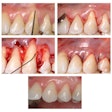Research published in the Journal of Clinical Periodontology provides new evidence that oral health is being overlooked in hospitals, with potential serious consequences (July 2011, Vol. 38:7, pp. 628-636).
After conducting a systematic review of five online databases -- Cochrane Library, Medline, OldMedline, Embase, and Cumulative Index to Nursing and Allied Health Literature (CINAHL) -- a team of U.K. researchers reviewed data from five studies between 1998 and 2009 in the U.K., U.S., France, and that Netherlands that met their inclusion criteria.
They found that oral health deteriorated following hospitalization, with an increase in dental plaque accumulation and gingival inflammation and a decrease in mucosal health, the worst being in patients who required help with their breathing.
"On the basis of current evidence, a deterioration would be expected to increase the risk of hospital-acquired infections, increase care costs, and have a negative impact on health-related quality of life," the researchers noted, adding that respiratory disease is one of the main risks resulting from poor oral health and hygiene.
In previous studies, poor oral health and dysfunction has been linked to a negative effect on nutritional status. There are also consequences for quality of life, well-being, and personal dignity during hospital stays.
This study suggests to several potential reasons for the decline in oral health during hospitalization, including the low priority given to oral care provision, improper oral care regimes, and as a direct consequence of hospitalization itself.
"In a challenging hospital environment, it may be inevitable that oral care is seen as a low priority, but it is clear that more needs to be done to ensure that some of the risks are minimized," said Nigel Carter, BDS, chief executive of the British Dental Health Foundation, in a press release.
There are guidelines for the provision of oral care in hospital settings, but there is limited detail for caregivers, he added.
"The help of close family and friends during hospital stays can make a difference to this aspect of their care and well-being, and more should be done to encourage their involvement," he said.



















